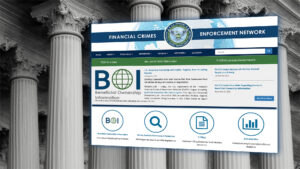To succeed as an entrepreneur, there are many laws which you need to be aware of, including “Blue Sky Laws.” In the United States, Blue Sky Laws are the securities laws of the individual states, and they reflect the ways each state regulates the offer or sale of “securities,” or the trade of financial assets such as stocks, options, or bonds.
Blue Sky Laws exist independent from, and in addition to, federal securities laws, which means they apply whether or not the federal law applies, or whether your company is public or private.
Although you may not have heard of Blue Sky Laws, chances are – if you own a business or are investing in a business – these laws apply to you. In fact, Blue Sky Laws are not limited to the direct offer and sale of securities, but also the registration and reporting requirements for broker-dealers, individual stockbrokers, and investment advisers. If you fit into any of the above categories, you would benefit from understanding the Blue Sky Laws in the state, or states, in which you conduct business.
An Introduction to Blue Sky Laws
Congress passed the Uniform Securities Act in 1956, establishing an official foundation for states to craft their own securities laws, which are commonly known as Blue Sky Laws. However, the origin of Blue Sky Laws dates back to the stock market crash of 1929. As a result of the crash, it became abundantly clear how much fraud had played a role and how badly stronger regulations were needed. Although Congress would later pass the Securities Act of 1933 and the Securities Exchange Act of 1934, in addition to forming the Securities and Exchange Commission (SEC), by 1931, most states already had some form of Blue Sky Laws in place. However, it was not until 1966, or the passing of the National Securities Markets Improvement Act (NSMIA), that existence of and compliance with both federal and state securities laws were harmonized. Before NSMIA, securities registration and overall compliance were generally subject to both state and federal requirements, creating a confusing, timely, and expensive process for issuers.
The legislative objective was to provide greater authority to the individual states to regulate the class and character of securities being offered to the public within that state. Accordingly, Blue Sky Laws started not necessarily as a revenue measure but rather the states’ response to protect the public, namely investors, from fraud carried out by those with greater access to more pertinent information and insider knowledge on the investment. Thus, Blue Sky Laws are not a single, uniform code or set of regulations, but are unique depending on the state.
Today, Blue Sky Laws still largely operate on a state-to-state basis. Although Congress tried to tackle the states’ lack of uniformity, it largely addressed the problem by creating a class of “covered” securities that would no longer be subject to state law (as explained in more detail below). Otherwise, states have the discretion to adopt all, some, or none of the existing federal laws. With this bit of history, you can probably see the importance of checking both federal law and the applicable Blue Sky Laws when it comes to securities regulation, filing, and registration.
Similarities Among Blue Sky Laws
Because the nature of Blue Sky Laws varies from state to state, it is easier to focus on general principles that remain consistent across the board. The key objective behind each Blue Sky Law is the elimination of securities fraud. Even the term “blue sky” is a metaphor for the empty, fraudulent promises of many securities offerings.
Below are three ways in which Blue Sky Laws across all states generally accomplish these goals:
- Registration Requirements
In general, unless there exists an applicable exemption due to the specific details of an offering, Blue Sky Laws require the registration of securities offerings, as well as the registration of brokers and brokerage firms, with that particular state’s regulatory securities division. Each state also has a securities commissioner, who is charged with carrying out that state’s securities laws and generally overseeing the securities board or division. The securities commissioner is vested with broad authority to conduct investigations into potential violations of the security statutes. Those investigations are carried out through the issuance of subpoenas for documents and subpoenas for testimony. The securities commissioner will review registered securities offerings and ensure that all participants in a securities transaction are properly qualified.
Securities laws, whether federal or state, value disclosure. In other words, companies must disclose anything to their investors to help the investors make informed decisions. Along with the disclosure obligations, Blue Sky Laws will often evaluate securities offerings for approval or disapproval based on an assessment. This assessment looks at several characteristics of the transaction, such as the nature of the party issuing the security, the nature of their business, and the actual securities being offered.
- Liability for Nondisclosures
Because Blue Sky Laws value full disclosure to protect investors, there are often steep consequences for concealing pertinent information or otherwise skirting compliance. Anti-fraud provisions in Blue Sky Laws create liability for a seller who commits fraudulent acts or conceals information, although what exactly makes a seller liable will vary from state to state. When a law “creates liability,” it offers one or more causes of action to an injured party – in other words, the injured party is given a right to sue whoever injured them. In this case, investors, the ones most harmed by a fraudulent act and whom Blue Sky Laws aim to protect, would be able to sue those who defrauded them.
In addition to being able to sue in a court, a harmed investor could use Blue Sky Laws to enforce a “rescission of transactions,” which forces an issuer of securities to repurchase the securities sold to an investor, and to refund the investor up to the original purchase price plus interest.
- Licensing and Registration Requirements for Personnel in an Offering
Blue Sky Laws often impose licensure requirements onto securities industry personnel. Affected personnel include those associated with broker-dealers and registered investment advisers. Technically, the licensing process is run by the Financial Industry Regulatory Authority (FINRA); however, the states determine their own testing standards. In order to offer and sell securities, personnel must be licensed according to a state’s Blue Sky Laws, as well as meet the federal requirements by FINRA.
Do I Always Have to Follow Blue Sky Registration Laws?
Although a risk-averse entrepreneur will want to ensure they have complied with any applicable Blue Sky Laws prior to issuing a security, registration of securities with a state’s securities division, or full compliance with filing requirements necessary to comply with applicable exemptions, is not always necessary. Through NSMIA, Congress created a class of securities known as “covered securities,” which are exempt from full compliance with Blue Sky Laws in certain situations, so long as an offering or sale complies with federal securities laws applicable to those transactions. If you offer a security that would be considered “covered,” that security would be subject only to federal regulations – not state. In fact, states cannot require registration for such covered securities under Blue Sky Laws. Examples of covered securities include nationally traded securities, securities offered and sold to qualified purchasers, or certain securities exempt from registration under very specific circumstances (the details of which are beyond the scope of this article). Additionally, many Blue Sky Laws are satisfied once a state agency receives notice that a security received federal exemption, simply requiring an additional filing fee.
However, even if a security is covered, you should still be aware of your state’s Blue Sky Laws. States may still require you to make notice filings or pay filing fees under certain circumstances. Further, covered securities may still be subject to Blue Sky provisions on fraud liability and personnel registration requirements. Even if you are a broker-dealer or investment adviser and not actually issuing the security, the security must still be eligible in your state in order for you to make recommendations to or solicit other investors. Alternatively, a broker who does not solicit or make recommendations to investors can still process trades on behalf of others; if such a trade involved a security violating Blue Sky Laws, the broker could be liable for damages in the future.
Whether you are an experienced venturer or investor, or you are just starting out, it is always advisable to carefully review the filing, registration, and legal requirements in a given transaction – depending on both your state and the type of security involved – with an experienced attorney. The corporate attorneys at O&A handle securities matters for clients every day. Please contact us to discuss how state blue sky laws and how securities laws in general may impact your business.







